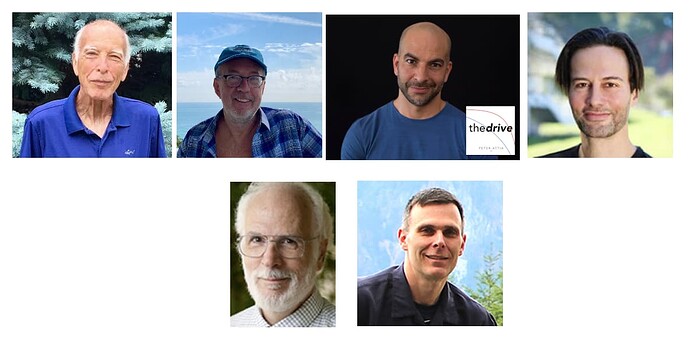Here is a sample of the people who we know, or suspect (see notes in part 2), are taking rapamycin. Yes, these are the “poster children” for rapamycin use in anti-aging.
You might ask why we should care if these people are taking rapamycin. The simple answer is that most of them have studied biology their entire lives, many with a focus on the biology of aging. And they’ve studied all the rapamycin / MTOR research done over the past decade. Some have been involved in, or are leading, the actual lifespan studies being done in mice and companion dogs (people’s personal pets). If these people believe rapamycin will work to slow aging, there is a reasonably good chance it will.
At the same time, I’ve included a number of researchers below who are intimately involved in the research around rapamycin and MTOR and who have decided rapamycin research isn’t yet at the level where they feel comfortable taking it themselves. Everyone has a different risk/reward profile.
Rapamycin is not a completely risk-free drug. I don’t think any exist. The research does, however, suggest that the low-doses used in anti-aging applications of rapamycin are relatively low risk.
Matt Kaeberlein, one of the researchers with the most experience with rapamycin in trials with mammals, has said with regard to human use: “Rapamycin… safer than Aspirin, Possibly. Safer than alcohol, Definitely”
Read the full story: Who in the health and longevity field is taking rapamycin (part 2)
